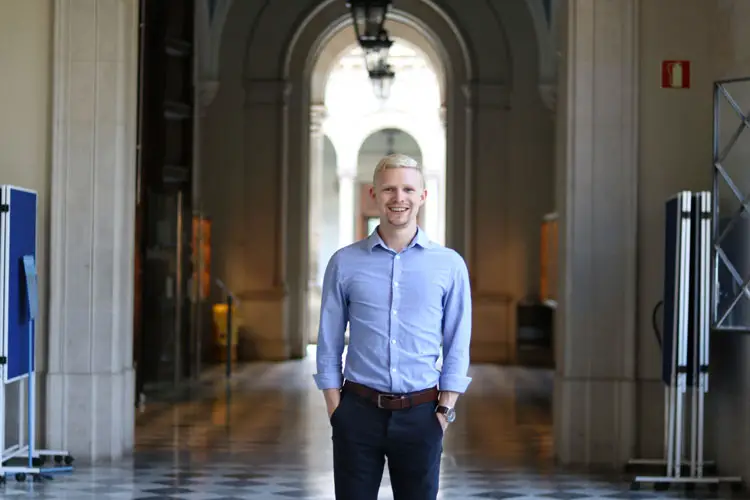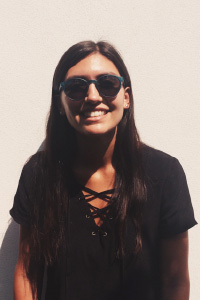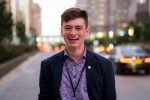Polywhat?
The French and Spanish Linguistics student studies languages as rare as Occitan and Faroese, and is currently working at the University of Barcelona.
By Flavia Martinez, Amherst College
Ty Debes, a senior at Indiana University Bloomington, is a polyglot.
What’s a polyglot, you ask? Well, it’s not as complicated as it may sound. It means that Debes speaks multiple languages—in his case, ten—including lesser-spoken languages like Faroese and Occitan, whose speakers only number around 66,000 and 800,000, respectively. He’s currently learning his eleventh language, Basque, while completing coursework, tutoring language groups and interning with the Department of International Development in Barcelona.
Debes has spent his last two years of college studying overseas, and will officially graduate after his semester abroad ends this month. I got a chance to speak with him about his passion for foreign tongues, and what he plans to do with such a mouthful of talent.
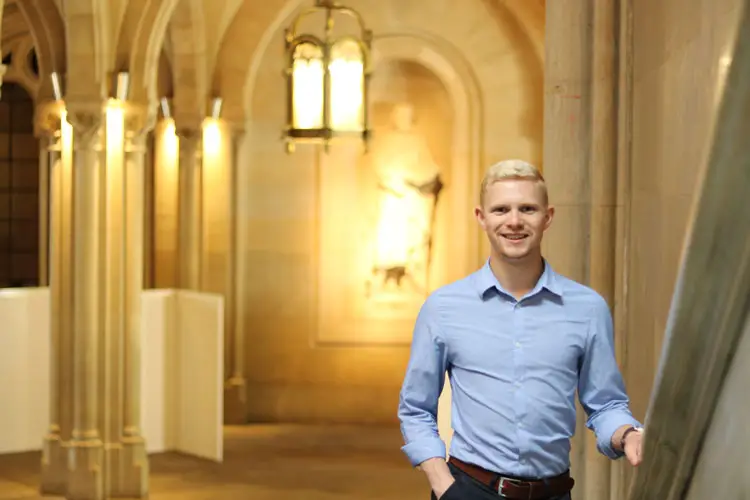
Flavia Martinez: When were you first introduced to foreign languages?
Ty Debes: I grew up in a monolingual home in a rural, homogenous area of Indiana. So, my first language was English; the only contact I had with foreign languages outside of that were either Pennsylvania Dutch, which was spoken by the Amish near my area, or the occasional snippets of foreign language I heard when we made the forty-five-minute trip into town.
I first started learning a foreign language when I was sixteen, during my junior year of high school. I began with Spanish, as it was the only language offered at my high school, and I took it for four semesters. I always knew that I liked languages and wanted to speak several, but I didn’t initially imagine that I would speak as many as I currently do. Once I arrived at college at Indiana University Bloomington, I began taking French and German; I really enjoyed both, so I decided to take another. I picked up Estonian, and from then on, I knew I wanted to learn as many languages as possible.
FM: Do you have a favorite language that you’ve learned, or any plans to study more in the future?
TD: My favorite languages right now are probably Estonian and Faroese; first, because of how complex their grammar structures are, and second, because I like how they sound. I try to constantly improve upon my languages; even my English will never be perfect or fully mastered, but it’s always possible to learn more vocabulary and ways of expression. My goal is to learn thirty languages at up to a C level (based on the European system), including Welsh, Kyrgyz, Icelandic, Greenlandic and Hungarian, among others.
I particularly like to learn lesser-spoken languages, like Occitan and Faroese, for linguistic purposes and personal pleasure. I think it’s important to support languages and cultures that are lesser known.
FM: Have you traveled a lot due to your field of study?
TD: I’ve had the amazing opportunity to study in seven countries, and I’ve loved every minute in all the various locations. It’s quite difficult to pick a favorite, but if I had to, I would say Tórshavn. Although it’s the capital of the Faroe Islands, it’s quite a small city, with an alluring landscape and agreeable people. The history of the islands and the language is intriguing, and has broadened my interest to the rest of Scandinavia and its languages.
Out of the places that I haven’t had the opportunity to live in, I would have to say my favorite is a tie between Ljubljana and Dubrovnik. They both have a lot to offer across all facets of life: aesthetics, culture, language, food and myriad other things.
FM: Can you describe your experience working overseas in Spain?
TD: I’m currently working as an intern at the University of Barcelona in a fantastic department. I arrive to work at 9 a.m. three days a week, and I meet with my boss and co-workers, with whom I speak exclusively Catalan. We’re working on several projects right now, namely safety procedures and protocol for European universities pertaining to foreign and local students, as well as professors, in cases of disaster or danger.
We’re also working on ways to integrate refugees from universities in the Middle East into European life, and give them an education and opportunities wherever they may end up.
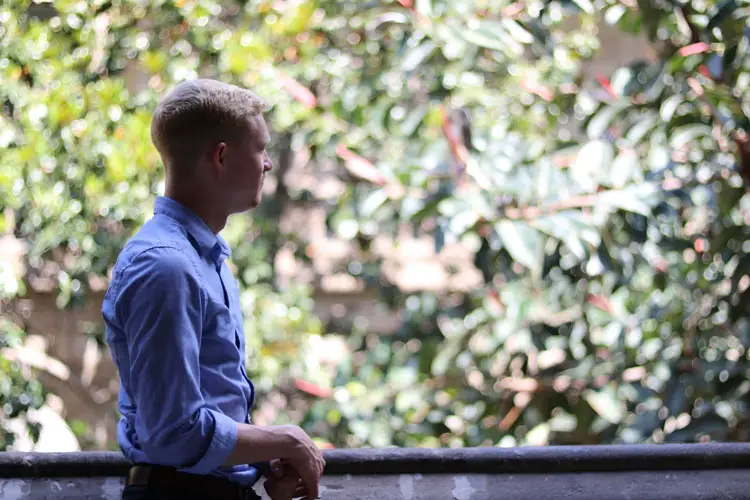
FM: What teaching experience have you had?
TD: I’ve been lucky enough to teach conversation courses for students learning French at both Indiana University and the University of Barcelona. I study Spanish linguistics and French linguistics, and I am quite prepared to answer questions and help native English, Spanish and Catalan speakers learn to speak French well. I help them with the complicated phonetics, as well as expansive French lexicon.
I also study Cognitive Linguistics, which is, in short, a field interested in the relationship between human language and the brain. I intend to earn a PhD in this field and become a professor, hopefully somewhere in Europe.
FM: Have you had any other experiences within your field besides research and teaching?
TD: I recently spoke at a conference concerning economics and linguistics in Budapest called “Money Talks,” where I gave a poster lecture on how social media is affecting consumers’ attention spans and, thus, the language used in advertisements. It’s a relatively new idea, as social media still isn’t very old, and is continuing to play a larger role in the lives of generations Y and Z. The purpose of my study was to demonstrate how these generations approach shopping and advice in different ways than their older counterparts.
Generations Y and Z can’t be bothered to read an entire advertisement when there are better things to be browsing through on Instagram and Facebook, and, as a result, advertisements need to be much shorter and more attention grabbing. I’m particularly interested in how language changes with the passage of time, and how it interacts with society.”
FM: What do you consider to be your biggest achievement so far and the greatest challenge that you’ve faced?
TD: My biggest achievement to date is probably the number of languages I’ve learned. Conversely, I think my greatest challenge is branching outside of linguistics and languages. I attempt to educate myself on the subjects that I don’t have time to study at university by reading literature from those fields, but that can prove to be rather difficult.
Picking up a textbook on something complicated, such as astrophysics or molecular biology, without any type of guide or tutor, can be just as confusing and useless as having not read anything at all. The hardest part is deciding what is reputable and factual, and what is complete garbage. It seems to me that the more subjects I explore, the more I realize how much more I have to learn.


